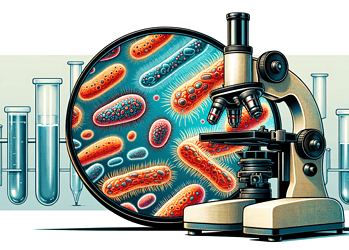U.N. health officials have issued a grim warning: we’re running out of ways to treat gonorrhea.

Gonorrhea is a relatively common disease, infecting 78 million people each year. Anyone who is sexually active can get gonorrhea, and the disease can spread like wildfire through unprotected sex. Some infected people have no symptoms at all, while others may experience burning with urination, and a swarm of other genital affections. If untreated gonorrhea can occasionally spread to affect joints or heart valves.
Traditionally, treating gonorrhea has been easy with antibiotics. But resistance to antibiotics has grown dramatically in recent years. Strains of multidrug-resistant gonorrhea that do not respond to any available antibiotics have already been detected, the main cause for this being antibiotics overuse in trivial cases.
“‘Gonorrhea used to be susceptible to penicillin, ampicillin, tetracycline and doxycycline — very commonly used drugs,’ said Jonathan Zenilman, who studies infectious diseases at Johns Hopkins. “But one by one, each of those antibiotics — and almost every new one that has come along since — eventually stopped working. One reason is that the bacterium that causes gonorrhea can mutate quickly to defend itself, Zenilman said.
If we were to study this adaptation from an external perspective, it’s truly admirable. The bacteria has shown a remarkable resilience and capacity to evolve.
“‘If this was a person, this person would be incredibly creative,’ he said. ‘The bug has an incredible ability to adapt and just develop new mechanisms of resisting the impact of these drugs.'”
However, we don’t study it from an external perspective. This bacteria affects us, and has the potential to become very dangerous. In light of this adaptation, the World Health Organization released new guidelines warning doctors that it no longer recommends an entire class of antibiotics for treating gonorrhea. Namely, they recommened stopping using quinolones, because quinolone-resistant strains of the disease have been reported in many parts of the world. Quinolones antibiotic medications include: Ciprofloxacin (Ciloxan Ophthalmic and Cipro) Levofloxacin (Levaquin and QUIXIN Ophthalmic) Lomefloxacin (Maxaquin) Moxifloxacin (Avelox).
Instead, it recommends using cephalosporins, another class of antibiotic, but there are worries that it’s only a matter of time before the disease will develop resistance to these too. In the meantime, scientists are working on solutions that either do the job without antibiotics or enhance them, such as the gonorrhea vaccine developed at S.U.N.Y. Buffalo.






